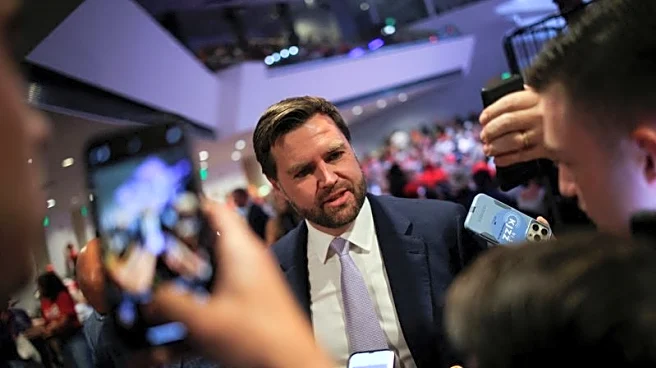What's Happening?
LoopMe, a leader in brand performance, has announced the expansion of its strategic advisory board with the inclusion of several industry veterans. The new members include Tariq Hassan, former McDonald's US marketing chief, Penry Price, ex-LinkedIn Marketing Solutions VP, and Marla Kaplowitz, a seasoned agency expert. The board, chaired by Greg Coleman, aims to provide strategic insights to solidify LoopMe's position in the market. The expansion is part of LoopMe's strategy to leverage data-driven marketing and AI-driven intelligence to enhance brand advertising solutions. The new advisors bring a wealth of experience in change management, hyper-scaling, and market leadership, which are expected to drive LoopMe's future growth.
Why It's Important?
The expansion of LoopMe's advisory board is significant as it underscores the company's commitment to innovation in brand performance and advertising technology. By bringing in experts with extensive experience in marketing, technology, and agency leadership, LoopMe is positioning itself to better navigate the rapidly evolving advertising landscape. This move could potentially level the playing field for independent agencies by providing them access to advanced technology and data insights previously available only to larger players. The strategic insights from the new board members are expected to help LoopMe maintain its competitive edge and continue delivering tangible outcomes for brands.
What's Next?
With the new advisory board in place, LoopMe is likely to focus on further integrating AI-driven tools and data analytics into its brand performance solutions. The company may also explore new partnerships and market opportunities to expand its reach and influence in the advertising industry. Stakeholders, including brands and agencies, will be watching closely to see how LoopMe leverages the expertise of its new advisors to drive innovation and growth.
Beyond the Headlines
The inclusion of high-profile industry leaders in LoopMe's advisory board highlights a broader trend of collaboration between technology companies and marketing experts. This trend reflects the increasing importance of data-driven decision-making in advertising and the need for companies to adapt to changing consumer behaviors and technological advancements. The move also raises questions about the future of traditional advertising models and the role of AI in shaping brand strategies.










